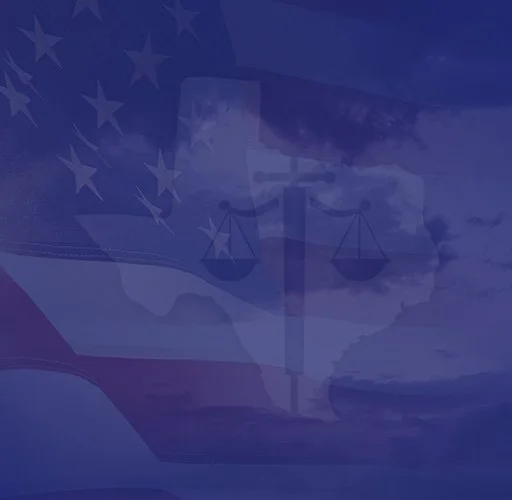
VAWA
Serving Clients Throughout Texas
Dallas-Garland, TX VAWA Attorney
Helping VAWA Self-Petitioners Find Safety & Independence in North Texas and Statewide
The threat of being uprooted from your home, your community, and your loved ones can be terrifying, especially while coping with the pain of domestic violence. The Violence Against Women Act (VAWA) recognizes these challenges and provides a way for survivors to seek protection and security without relying on an abusive partner or family member.
Texas Immigration Law Office PLLC is committed to providing the legal support you need at this critical time in your life. With compassionate, personalized guidance, we aim to help you move toward a future in the U.S., untethered from abuse.
Attorney Laura Martinez
Over 15 Years of Experience
Meet Your Immigration Advocate
With 15+ years of legal practice, Laura Martinez is a devoted and conscientious attorney, making her services available across the country.
Call 469-378-9155 or reach out to us online to schedule a free initial consultation with a VAWA lawyer.
What Is VAWA & What Is a VAWA Self-Petition?
The Violence Against Women Act (VAWA) is a federal law enacted to protect victims of domestic violence, abuse, or cruelty. Understanding that many individuals stay in harmful situations due to fear of immigration consequences, VAWA provides a lifeline.
Under VAWA, abused spouses, children, and parents of U.S. citizens or LPRs can submit what is commonly known as a “VAWA self-petition.” This petition enables eligible individuals to apply for immigrant benefits independently, granting them the opportunity to live, work, and reside in the United States without relying on an abusive partner or family member.
If you think you may qualify for a VAWA self-petition, please know help is available. Filing a petition might sound intimidating, but our office is here to support and guide you through every step.
Eligibility Requirements for VAWA Self-Petitioners
The law provides that the following individuals may qualify for VAWA protection if they meet certain criteria:
Abused Spouses of U.S. Citizens or Lawful Permanent Residents
Individuals who are married to, or recently divorced (within two years) from, a U.S. citizen or LPR and experienced abuse or extreme cruelty during the marriage.
Abuse survivors whose child was victimized by their U.S. citizen or LPR spouse may also qualify under VAWA.
Abused Children
Unmarried individuals under 21 years of age who have endured abuse or extreme cruelty from their U.S. citizen or LPR parent.
Certain exceptions may extend the age limit to 25 for applicants who can show that the abuse was a direct reason for the filing delay.
Abused Parents
Parents of a U.S. citizen child aged 21 or older who has subjected them to abuse or cruelty.
What Qualifies as Abuse According to VAWA?
Abuse is more than physical violence. VAWA recognizes various forms of cruelty that cause harm, including verbal abuse, emotional manipulation, financial control, and threats to immigration status.
To demonstrate eligibility, petitioners must also show:
That they lived with the abuser at one point.
Their marriage or relationship was genuine and not for immigration purposes.
Good moral character, which means no significant criminal record that would impact eligibility.
No one deserves to stay in a harmful environment for fear of losing their place in the U.S. If you meet the requirements above, we encourage you to take the first step toward finding safety and independence.

Our Testimonials
Hear From Our Happy Clients
Step-by-Step Guide to the VAWA Application Process
Applying for a VAWA self-petition may seem daunting, but breaking it down into clear, straightforward steps can help ease the process. Here’s a guide to what you can expect when filing your petition:
1. Initial Consultation
Your first step is to meet with an attorney who is familiar with VAWA requirements. During this consultation, you’ll explore whether you meet the eligibility criteria, and we’ll discuss your unique circumstances in a safe, confidential environment.
2. Gathering Documentation and Evidence
Gathering documentation for your case involves key items such as a personal statement detailing the abuse, proof of your relationship to the abuser (e.g., marriage or birth certificates), evidence of abuse like police reports, hospital records, or photos.
3. Preparing the I-360 Petition
The VAWA self-petition is submitted using Form I-360, Petition for Amerasian, Widow(er), or Special Immigrant.
4. Filing the Petition
We will help you file your application with U.S. Citizenship and Immigration Services (USCIS). Once filed, USCIS will issue a receipt notice, which confirms they have received your petition.
5. Waiting for USCIS Review
USCIS will review your case to determine whether it meets the criteria for VAWA processing. This phase involves background checks and document verification. Depending on their findings, USCIS may approve the petition or ask for additional documentation.
6. Outcome and Next Steps
Once your petition is approved, you may be eligible to apply for additional immigration benefits, such as employment authorization or permanent residency (a green card). Approval of your VAWA petition is not the end of your immigration path but a significant step forward.
Compassionate guidance is just a call away. Contact us online or call 469-378-9155 to start your VAWA self-petition process with a free initial consultation.
Proving Abuse & Gathering Evidence for Your VAWA Self-Petition
Filing a VAWA self-petition can be emotionally and practically challenging, especially when gathering evidence to prove abuse. This can feel even harder if you're still living with your abuser or can't access police or medical records due to lack of ID or fear of retaliation.
U.S. Citizenship and Immigration Services (USCIS) understands that survivors face barriers to obtaining traditional documentation. They use the "any credible evidence” standard, meaning that while official records like police or medical reports are helpful, alternative evidence is also accepted when primary documents are unavailable or unsafe to obtain. Your petition won’t be rejected just because you lack certain “first-choice” evidence, as long as the evidence supports your eligibility.
Keep track of your attempts to gather records. Note dates, locations, and outcomes of your requests. For instance, if a police department denies your request for a report due to lack of ID, explain this in your petition.
Types of Evidence to Support Your VAWA Petition
Here are examples of both formal and informal evidence that may help strengthen your case. Each situation is unique, and what’s available to you will depend on your circumstances:
Police Reports - If law enforcement was involved during an incident of abuse, reports documenting these interactions can be powerful evidence.
Medical Records - Records of injuries or treatments related to abuse can help corroborate your claims.
Restraining Orders - Legal actions, such as protective orders, can serve as clear proof of abuse and the need for safety measures.
Witness Statements - Affidavits or declarations from trusted friends, neighbors, or other individuals who are aware of the abuse you’ve suffered can provide valuable context.
Personal Statement - Your own written account is a crucial piece of evidence.
Other Credible Evidence - Letters, photos, text messages, emails, or even notes from the abuser can be submitted to highlight the nature of the abuse.
Prioritizing Safety During the Process
Your safety comes first during every stage of the VAWA self-petition process. Here is important safety advice to follow while gathering your evidence:
Use a Safe Mailing Address. Never use your home address where you may still reside with your abuser. Instead, use the address of a trusted friend, family member, or your attorney to receive sensitive correspondence.
Secure Your Documents. Keep your evidence and copies of your petition in a safe place, preferably outside your home. Abusers should not have access to these materials.
Obtain Help from Advocates. Agencies, shelters, or local non-profits that serve abuse survivors can assist with gathering records or writing statements on your behalf.
Explore Authorization Options. You may authorize someone you trust to obtain certain records for you on your behalf. This can minimize your own direct risk.
We understand that gathering evidence can feel like an insurmountable hurdle. We are here to help ease this burden by guiding you through how to find, compile, and present evidence that aligns with your situation. We’ll also make sure USCIS understands any challenges you’ve faced in meeting documentation requirements.
Common Mistakes to Avoid When Filing a VAWA Petition
Filing a VAWA petition involves careful attention to detail. To avoid unnecessary stress and delays, be mindful of these common mistakes:
Incomplete Form I-360 Submissions
Missing answers or failing to provide all required supporting documents can lead to processing delays or outright denial.Insufficient Evidence of Abuse
Failing to adequately document the abuse can jeopardize your petition. Always include a range of evidence to strengthen your case.Missed Deadlines or Filing Errors
Submitting your petition after deadlines or to the wrong USCIS address can delay the process significantly.Not Addressing Moral Character Concerns
Be upfront about past incidents that could impact moral character requirements, and provide explanations or mitigating evidence when appropriate.
VAWA & Your Immigration Status: What Happens Next?
Approval of your VAWA self-petition opens up new opportunities for you. While each case is unique, here’s what happens after a successful petition is approved:
Work Authorization
Approved petitioners may be able to apply for employment authorization, allowing them to work while their immigration status is resolved.Adjustment of Status
VAWA petition approval can enable you to apply for a green card, granting you permanent residency in the U.S.
Local Resources for VAWA Self-Petitioners in Texas
Here are a few organizations that offer essential support for immigrants experiencing abuse:
Texas Council on Family Violence (TCFV): Resources for safety planning, housing, and emotional support.
Aid to Victims of Domestic Abuse (AVDA): Counseling and advocacy services in Houston.
SAFE (Stop Abuse for Everyone): Emergency shelters, counseling, and advocacy in Austin.
Compassionate Legal Help for VAWA Applicants Across Texas
At Texas Immigration Law Office PLLC, our mission is rooted in supporting the Latino community in Texas with accessible and compassionate legal services. Here’s how we stand out:
We have assisted thousands of immigrants on their path to lawful residency and citizenship in the U.S.
We offer free initial consultations to make our legal services as accessible as possible.
Flexible options include virtual consultations to accommodate your needs.
We proudly serve communities in both Spanish and English, making legal guidance approachable for all.
We are committed to helping everyone, regardless of political affiliation or background.
If you or someone you know could benefit from filing a VAWA self-petition, we are here to offer the care and legal guidance you deserve.
Call (469) 378-9155 or reach out online to schedule your free initial consultation and take the next step toward security and peace.
Experience & Integrity
Providing honest, informed, and strategic legal representation backed by years of experience.
Compassionate Advocacy
Every client is treated with respect, empathy, and personalized attention throughout their immigration journey.
Clear Communication
Simplifying complex immigration laws and keeping clients informed at every stage of their case.
Commitment to Community
Dedicated to serving and empowering Texas’s immigrant community with reliable legal guidance.

We're Committed to Your Future
Guiding You Home
By submitting, you agree to receive text messages from Texas Immigration Law Office PLLC at the number provided, including those related to your inquiry, follow-ups, and review requests, via automated technology. Consent is not a condition of purchase. Msg & data rates may apply. Msg frequency may vary. Reply STOP to cancel or HELP for assistance. Acceptable Use Policy
Contact Us For A Free Virtual Initial Consultation
Have questions? Ready to get started? Fill out the form below.







